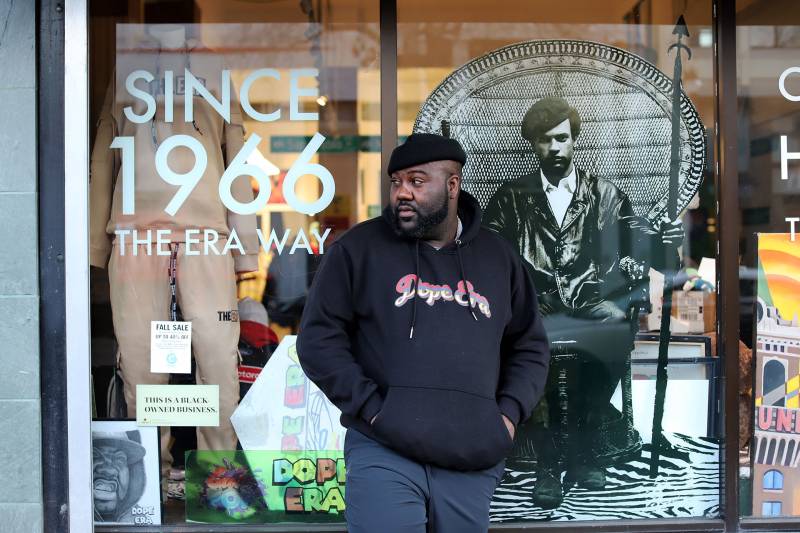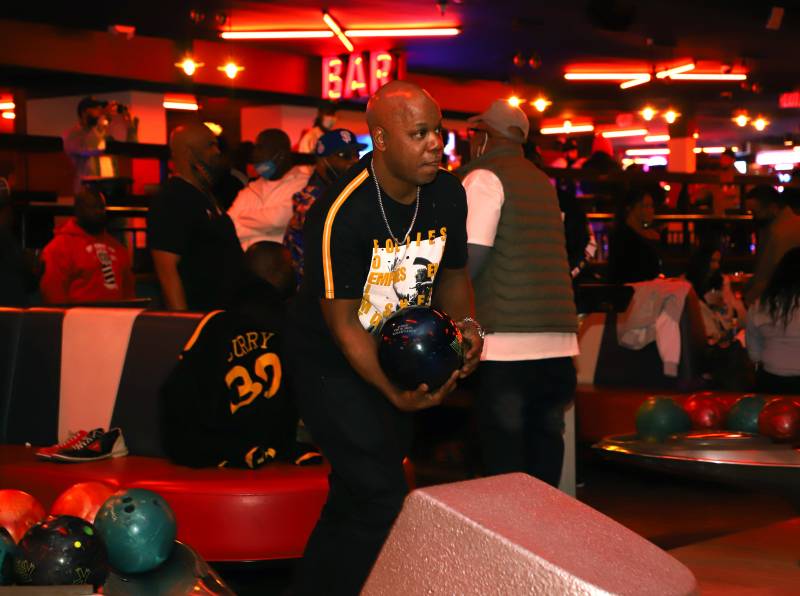W
hen Mistah F.A.B. was a kid growing up in North Oakland, he took notes from his heroes. Malcolm X and Huey P. Newton ignited his political consciousness. Tupac showed him that hip-hop could move the masses. And Stan Lee taught him about the power of imagination.
Now, just days after his 40th birthday, the beloved Oakland artist is reflecting on how these lessons prepared him for all that he’s accomplished in rap, community activism and business. And it’s Lee, the creator of the ever-expanding Marvel universe, who’s inspiring him to think about what he wants out of his next chapter. As he enters his fourth decade, he’s preparing to open his new downtown Oakland nightclub, Dezi’s, and is starting to work on his biggest ambition: a youth development-focused community arts and culture center called Dope Era Academy.
“In my mind, it’s like Professor X, and this is the school for mutants,” he says, dropping an X-Men reference on a recent afternoon at his streetwear boutique-turned-community hub, Dope Era. “If you’ve ever had a creative side and you’re an artist or you’re a dancer or you have some genius, you have this mutant-like ability. But coming from the areas that we come from, we don’t have the luxury of having Professor Xs. There’s no one that’s cultivating that.”

Mistah F.A.B., born Stanley Cox, wants to be that guiding force in his community. He opened Dope Era six years ago at its first location in his childhood neighborhood on the corner of 45th and Market Streets. Before he signed the lease on a humble storefront next to a laundromat and a barbershop, he sold sweat suits and T-shirts out of the trunk of his car, much like he used to sling CDs when he was a rising star of the hyphy movement in the mid 2000s.
The shop was decorated with murals of Mac Dre and Mistah F.A.B.’s childhood friend Nguyen, both lost to gun violence. An airbrushed portrait of his biggest champion and best friend, his late mother Desrie Jeffery, watched over the space like a guardian angel. Dope Era became a love letter from Mistah F.A.B. to his neighborhood, a hub for his Thanksgiving turkey giveaways, school supply drives and many other community initiatives to make sure that his people were fed and taken care of.




